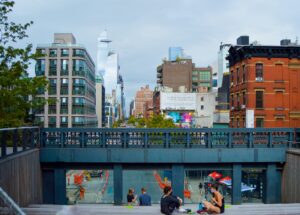The temptation by government and the formal sector to create more ‘formal’ markets counters many of the strategic decisions that informal traders rely on in South Africa. Rather than pushing for formalisation, there is great potential to build on the success of small enterprises while making it easier, safer and better for them to grow as sustainable businesses.
“Local is lekker” is one of my favourite South African expressions, but in recent months I’ve learnt that “local” isn’t a straightforward concept when it comes to food systems. Producing and consuming locally has clear benefits from a climate, social and economic perspective, but the Western Cape has critical limitations around water, seasonality and access to basic public services. These must be taken into account before jumping on the hyper-local food agenda.
These issues converge most visibly in public spaces, where stringent regulations and the physical environment often prevent local economies from thriving and where inequality, inadequate services, xenophobia and the prioritisation of large commercial interests are commonplace. Thinking of a food ecosystem requires a vision beyond the mechanical production or provision of food.
Indeed, like many small towns in the Western Cape, access to nutritious food in some communities in Worcester is precarious. Dr Jane Battersby from the Department of Environmental and Geographical Science at the University of Cape Town (UCT) explains that part of the challenge is the “seasonal employment that results from crop seasonality. Most people are dependent on wages and grants to ensure access to food. The limitation is not the availability of nutritious food, but the resources to access and use the food.”
Read the full article on Daily Maverick
Author:Marcela Guerrero Casas
Recommended by Stephanie Cheung











More Stories
Can public spaces be designed and managed for all in African cities?
Kamwokya Community Center by Kéré Architecture
Creating Great Public Spaces in Three African Cities